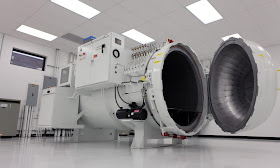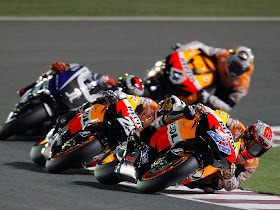
Tuesday, July 31, 2012
Monday, July 30, 2012
1 An Overview of Composites

1.1 Definition of Composites
1.2 Historic Development of Composites
1.3 Classification of Composites
1.4 Applications of Composites
GRE Analogy Example

San Francisco
Compare Boston to San Francisco, both cities have ports, you can not say they are the same due to they own ports, think about the culture, industries ..., they are different. Think further to reveal characteristics of the two objects.
Two objects (such as : two countries, cities, companies, universities, issues ... ) have one or
two in common doesn't mean they are the same in other aspects.
Afghanistan War

Viewer discretion is advised.
Bomb Hunters Afghanistan - Secret Access / National Geographic
Most Incredible Photos - Afghan Warrior / National Geographic
46 - Gear Trains
46-1 Ordinary Gear Trains
46-2 Gear Type Selection
46-3 Planetary Gear Trains
46-4 Differential Trains
46-2 Gear Type Selection
46-3 Planetary Gear Trains
46-4 Differential Trains
2 Tires and Wheels
2.1 Tire Requirements
2.2 Tire Designs
2.3 Wheels
2.4 Springing Behavior
2.5 Non-Uniformity
2.6 Rolling Resistance
2.7 Rolling Force
2.8 Lateral Force and Friction Coefficients
2.9 Resulting Force Coefficient
2.10 Tire Self-Aligning Torque in General
2.11 Tire Overturning moment and Displacement of point of application of force
2.12 Torque Steer Effects
2.2 Tire Designs
2.3 Wheels
2.4 Springing Behavior
2.5 Non-Uniformity
2.6 Rolling Resistance
2.7 Rolling Force
2.8 Lateral Force and Friction Coefficients
2.9 Resulting Force Coefficient
2.10 Tire Self-Aligning Torque in General
2.11 Tire Overturning moment and Displacement of point of application of force
2.12 Torque Steer Effects
2 - Engine Design and Operating Parameters
2.1 Important Engine Characteristics
2.2 Geometrical Properties of Reciprocating Engines
2.3 Brake Torque and Power
2.4 Indicated Work Per Cycle
2.5 Mechanical Efficiency
2.6 Road-Load Power
2.7 Mean Effective Pressure
2.8 Specific Fuel Consumption and Efficiency
2.9 Air/Fuel and Fuel/Air Ratios
2.10 Volumetric Efficiency
2.11 Engine Specific Weight and Specific Volume
2.12 Correction Factors for Power and Volumetric Efficiency
2.13 Specific Emissions and Emissions Index
2.14 Relationships between Performance Parameters
2.15 Engine Design and Performance Data
2.2 Geometrical Properties of Reciprocating Engines
2.3 Brake Torque and Power
2.4 Indicated Work Per Cycle
2.5 Mechanical Efficiency
2.6 Road-Load Power
2.7 Mean Effective Pressure
2.8 Specific Fuel Consumption and Efficiency
2.9 Air/Fuel and Fuel/Air Ratios
2.10 Volumetric Efficiency
2.11 Engine Specific Weight and Specific Volume
2.12 Correction Factors for Power and Volumetric Efficiency
2.13 Specific Emissions and Emissions Index
2.14 Relationships between Performance Parameters
2.15 Engine Design and Performance Data
Sunday, July 29, 2012
Saturday, July 28, 2012
2 Raw Materials

2.1 Matrix
2.2 Reinforcement
2.3 Prepregs
2.4 Some other Materials
Friday, July 27, 2012
Thursday, July 26, 2012
3 Manufacturing Processes

3.1 Mold
3.2 PMC (Polymer Matrix Composite) Fabrication Methods.
3.3 MMC (Metal Matrix Composite) Fabrication Methods.
3.4 CMC (Ceramic Matrix Composite) Fabrication Methods.
Wednesday, July 25, 2012
47 - Robots and Smart Machines
47-1 Introduction
47-2 Design and Function
47-3 Structural Design
47-4 Actuation and Power Transmission Systems
47-5 Sensing Systems
47-6 Computer Hardware and Software Organization
47-7 Controller Design
47-8 Geometric Design
47-9 Tool Design
47-2 Design and Function
47-3 Structural Design
47-4 Actuation and Power Transmission Systems
47-5 Sensing Systems
47-6 Computer Hardware and Software Organization
47-7 Controller Design
47-8 Geometric Design
47-9 Tool Design
1 - Introduction to Plastic
Chapter Overview :
1.1 Definitions of plastics and polymers
1.2 History of plastics
1.3 Raw material supply and pricing
1.4 Strategic material
1.5 The plastics industry
1.6 Uses of plastics in modern
1.1 Definitions of plastics and polymers
1.2 History of plastics
1.3 Raw material supply and pricing
1.4 Strategic material
1.5 The plastics industry
1.6 Uses of plastics in modern
Inventor - Analogies

Heritage Flight over New York.
The Skyscraper and Airplane may be the greatest inventions in 20th century.
I divided examples into two sections : Scientific Questions and Human Behavior.
Tuesday, July 24, 2012
4 Methodology and Management of a Design Project
4.1 Design Consideration
4.2 Requirements of Materials' Design
4.3 Structural Component Design Techniques
4.4 The Need for Design Management
4.5 The Design Process
4.6 Design Potential
4.2 Requirements of Materials' Design
4.3 Structural Component Design Techniques
4.4 The Need for Design Management
4.5 The Design Process
4.6 Design Potential
Monday, July 23, 2012
Donald Cook Destroyer - Build It Bigger

Arleigh Burke-class guide missile destroyer.
Just simple introduction of the destroyer. Don't expect to want knowing much details of the ship.
Sunday, July 22, 2012
Ranger School - Surviving the Cut

Surviving the Cut S01E01. Discovery Channel.
This series may be the most vicarious document to know the rigor training.
5 Mechanical Behavior of Composite Materials

5.1 Stiffness of Unidirectional Composites
5.2 Transformation of Stress and Strain
5.3 Off-Axis Stiffness of Unidirectional Composites
5.4 In-Plane Stiffness of Symmetric Laminates
5.5 Flexural Stiffness Sandwich Laminates
5.6 Properties of General Laminates
5.7 Strength of Composites Materials
5.8 Hygrothermal Behavior
5.9 Micromechanics
Saturday, July 21, 2012
Inside Hubble's Final Mission

As a NASA Astronaut, John Herrington has journeyed into space aboard the Space Shuttle and space walked at the International Space Station. On Inside Hubble's Final Mission he takes the cameras of National Geographic to give you a rare behind the scenes look at the people places and things that have prepared the crew and the Space Shuttle Atlantis for our final voyage to the Hubble Space Telescope. Together we will guide you on a remarkable journey into the heart of NASA's Kennedy Space Center, the home of the Space Shuttle fleet, to the training sessions and simulators at the Johnson Space Center in Houston, TX. Written by National Geographic.
Friday, July 20, 2012
48 - Sections and Shapes Tabular Data
48-1 Centroids and Center of Gravity
48-2 Second Moments of Areas
48-3 Preferred Numbers and Sizes
48-4 Sizes and Tolerances of Steel Sheets and Bars
48-5 Wire and Sheet Metal
48-6 Structural Shapes
48-2 Second Moments of Areas
48-3 Preferred Numbers and Sizes
48-4 Sizes and Tolerances of Steel Sheets and Bars
48-5 Wire and Sheet Metal
48-6 Structural Shapes
2 - Polymeric Materials
Chapter Overview :
2.1 Fundamentals of matter ( periodic table, electron configuration, atomic properties, valence)
2.2 Bonding ( ionic, metallic, covalent, secondary)
2.3 Basic concepts in organic chemistry ( carbon atom bonding, carbon-carbon molecular
orbitals, functional groups, naming organic compounds)
2.4 Polymers (general concepts)
2.5 Formation of polymers (additional polymerization, other polymerizations )
2.6 Thermoplastics and Thermosets
2.7 Copolymers
2.1 Fundamentals of matter ( periodic table, electron configuration, atomic properties, valence)
2.2 Bonding ( ionic, metallic, covalent, secondary)
2.3 Basic concepts in organic chemistry ( carbon atom bonding, carbon-carbon molecular
orbitals, functional groups, naming organic compounds)
2.4 Polymers (general concepts)
2.5 Formation of polymers (additional polymerization, other polymerizations )
2.6 Thermoplastics and Thermosets
2.7 Copolymers
6 Secondary Porcessing

6.1 Machining Techniques
6.2 Joining
6.3 Repair
3 - Thermochemistry of Fuel-Air Mixtures
3.1 Characterization of Flames
3.2 Idea Gas Model
3.3 Composition of Air and Fuels
3.4 The First Law of Thermodynamics and Combustion
3.5 The First Law of Thermodynamics and Combustion
3.2 Idea Gas Model
3.3 Composition of Air and Fuels
3.4 The First Law of Thermodynamics and Combustion
3.5 The First Law of Thermodynamics and Combustion
- 3.5.1 Energy and Enthalpy Balances
- 3.5.2 Enthalpies of Formation
- 3.5.3 Heating Value
- 3.5.4 Adiabatic Combustion Processes
- 3.5.5 Combustion Efficiency of an Internal Combustion Engine
- 3.6.1 Entropy
- 3.6.2 Maximum Work from an Internal Combustion Engine and Efficiency
- 3.7.1 Chemical Equilibrium
- 3.7.2 Chemical Reaction Rates
Engineering - Analogies

M107 Muzzle Brake. This muzzle brake is similar with the Thrust Reverse.
In this article, I collect analogies about engineering connection.
Thursday, July 19, 2012
CH 1 Introduction
_fires_a_tomahawk_missile_in_support_of_OIF.jpg)
USS Cape St.George fires a tomahawk missile. Surface-ship-launched.
Section 1 : Document Organization
Section 2 : Tomahawk Weapon System
Section 3 : Tomahawk Cruise Missile
Section 4 : Torpedo Tube Launch Configuration
Section 5 : Capsule Launching System
Section 6 : Vertical Launching System Configuration
Wednesday, July 18, 2012
7 Experimental Testing
7.1 Testing Problem
7.2 Standard and Methods Available
7.3 Physical Properties
7.4 Mechanical Properties
7.2 Standard and Methods Available
7.3 Physical Properties
7.4 Mechanical Properties
CH 1 ~ CH 2

CH 1 Introduction
CH 2 Aircraft and Systems Description and Operation. CH 2 : 2.1 ~ 2.33
Tuesday, July 17, 2012
1 GRE revised General Test
Learn how the test has been revised
Review basic information on the structure of the test, test preparation, and scoring.
Review basic information on the structure of the test, test preparation, and scoring.
Monday, July 16, 2012
8 Quality Control

8.1 Quality Control Steps and Items
8.2 Defects
8.3 Inspection of Raw Materials
8.4 Non-Destructive Evaluation
Sunday, July 15, 2012
49 - Stress
49-1 Definitions and Notation
49-2 Triaxial Stress
49-3 Stress-Strain Relations
49-4 Flexure
49-5 Stresses due to Temperature
49-6 Contact Stresses
49-2 Triaxial Stress
49-3 Stress-Strain Relations
49-4 Flexure
49-5 Stresses due to Temperature
49-6 Contact Stresses
Centrifugal Force - Analogies

Centrifugal Force is always tricky to deal with. Too much centrifugal force, you would be
drawn away from the corner, too little, you would fall down to the ground.
3 - Microstructures in Polymers
Chapter Overview :
3.1 Solids, liquids, and gases
3.2 Amorphous and crystalline
3.3 Thermal transition
3.4 Effects of thermal changes on polymers
3.5 Polymer length, molecular weight (average molecular weight and molecular weight distribution)
3.6 Physical and mechanical property implications of molecular weight and MWD
3.7 Melt index
3.8 Steric (shape) effects
3.1 Solids, liquids, and gases
3.2 Amorphous and crystalline
3.3 Thermal transition
3.4 Effects of thermal changes on polymers
3.5 Polymer length, molecular weight (average molecular weight and molecular weight distribution)
3.6 Physical and mechanical property implications of molecular weight and MWD
3.7 Melt index
3.8 Steric (shape) effects
Thursday, July 12, 2012
CH2 Engine and Related Systems

Heat Suppression is the critical device to reduce the possibility of being hit by heat seeking
missile.
2.35 - 2.46
Tuesday, July 10, 2012
4 - Properties of Working Fluids
4.1 Introduction
4.2 Unburned Mixture Composition
4.3 Gas Property Relationships
4.4 A Simple Analytic Ideal Gas Model
4.5 Thermodynamic Charts
4.7 Computer Routines for Property and Composition Calculations
4.9 Exhaust Gas Composition
4.2 Unburned Mixture Composition
4.3 Gas Property Relationships
4.4 A Simple Analytic Ideal Gas Model
4.5 Thermodynamic Charts
- 4.5.1 Unburned Mixture Charts
- 4.5.2 Burned Mixture Charts
- 4.5.3 Relation between Unburned and Burned Mixture Charts
4.7 Computer Routines for Property and Composition Calculations
- 4.7.1 Unburned Mixtures
- 4.7.2 Burned Mixtures
4.9 Exhaust Gas Composition
- 4.9.1 Species Concentration Data
- 4.9.2 Equivalence Ratio Determination from Exhaust Gas Constitutes
- 4.9.3 Effects of Fuel/Air Ratio Nonuniformity
- 4.9.4 Combustion Inefficiency
50 - Deflection
50-1 Stiffness or Spring Rate
50-2 Deflection due to Bending
50-3 Properties of Beams
50-4 Computer Analysis
50-5 Analysis of Frames
50-2 Deflection due to Bending
50-3 Properties of Beams
50-4 Computer Analysis
50-5 Analysis of Frames
False Dilemma
Can you imagine that the Jeep is the combination of Ford Model-T and the tractor ?
This article is to collect the example of the (old + old ) creates new one, or compromise.
1+1 ≠ 2
4 - Mechnical Properties (Macro Viewpoint)
Chapter Overview
4.1 Mechanical properties in solids (types of forces, elastic behavior and definitions)
4.2 Mechanical properties in liquids -- viscous flow (viscous behavior and definitions,
Newtonian and non-Newtonian flows, measurements of viscosity)
4.3 Viscoelastic materials (viscoelastic behavior and definitions, time dependence, long-range
and short-range interactions.)
4.4 Plastic stress-strain behavior (plastic behavior and definitions,
interpretation of plastic behavior,mechanical model of plastic behavior, non-tensile forces)
4.5 Creep
4.6 Toughness, impact strength, and hardness
4.7 Reinforcements
4.8 Fillers
4.9 Toughness modifier
4.1 Mechanical properties in solids (types of forces, elastic behavior and definitions)
4.2 Mechanical properties in liquids -- viscous flow (viscous behavior and definitions,
Newtonian and non-Newtonian flows, measurements of viscosity)
4.3 Viscoelastic materials (viscoelastic behavior and definitions, time dependence, long-range
and short-range interactions.)
4.4 Plastic stress-strain behavior (plastic behavior and definitions,
interpretation of plastic behavior,mechanical model of plastic behavior, non-tensile forces)
4.5 Creep
4.6 Toughness, impact strength, and hardness
4.7 Reinforcements
4.8 Fillers
4.9 Toughness modifier
Monday, July 9, 2012
A The Aircraft

Ch 1 General Description
Ch 2 Systems
Ch 3 Serving and Handling
Ch 4 Helicopter Operating limitations
Sunday, July 8, 2012
Saved from the Bullte

Inside Hard Armor Plate. PACA Body Armor. The Round Stops Here.
Ceramic plates are designed to stop rifle rounds and armor-piercing rounds which have a penetrating steel pin in the bullet. Plates are engineered by bonding a layer of ceramic to a hard panel made of multiple layers of ballistic material wrapped in a fabric covering.
Friday, July 6, 2012
Thursday, July 5, 2012
Gun

the gun issue of the society.
5 - Chemical and Physical Properties
Chapter Overview :
5.1 Environmental Resistance and Weathering
5.2 Chemical Resistivity and Solubility
5.3 Permeability
5.4 Electrical Properties
5.5 Optical Properties
5.6 Flammability
5.7 Plastics Identification
5.1 Environmental Resistance and Weathering
5.2 Chemical Resistivity and Solubility
5.3 Permeability
5.4 Electrical Properties
5.5 Optical Properties
5.6 Flammability
5.7 Plastics Identification
Wednesday, July 4, 2012
1 Introduction to Control Systems
Chapter Overview :
1-1 Introduction
1-2 Examples of Control Systems
1-3 Closed - Loop Control versus Open - Loop Control
1-4 Outline of the Book
1-1 Introduction
1-2 Examples of Control Systems
1-3 Closed - Loop Control versus Open - Loop Control
1-4 Outline of the Book
Ch 1 Introduction
1-1 Note to Students
1-2 Definition of a Fluid
1-3 Scope of Fluid Mechanics
1-4 Basic Equations
1-5 Methods of Analysis
System and Control Volume
Differential versus Integral Approach
1-6 Dimensions and Units
Systems of Dimensions
Systems of Units
Preferred Systems of Units
1-7 Summary
Problems
1-2 Definition of a Fluid
1-3 Scope of Fluid Mechanics
1-4 Basic Equations
1-5 Methods of Analysis
System and Control Volume
Differential versus Integral Approach
1-6 Dimensions and Units
Systems of Dimensions
Systems of Units
Preferred Systems of Units
1-7 Summary
Problems
Contentns

adding significant weight to the car.
Sunday, July 1, 2012
Reinforeced Carbon-Carbon

provides extra protection to the areas which are hottest during re-entry. Temperatures on
these surfaces can exceed 3,000 degrees F.















